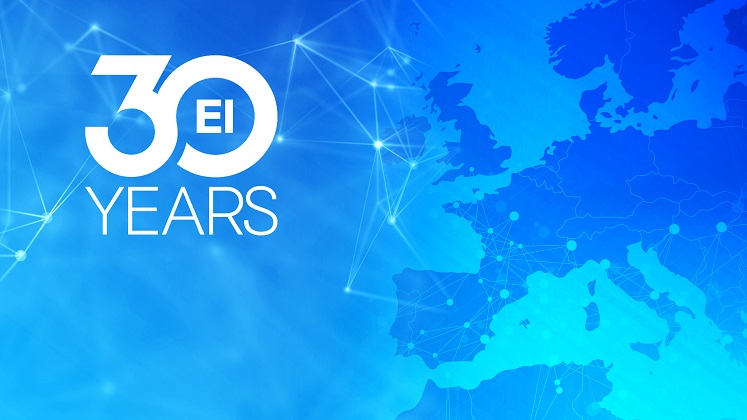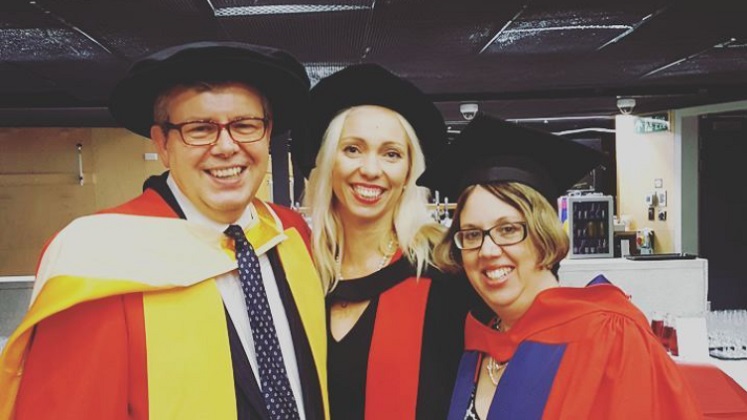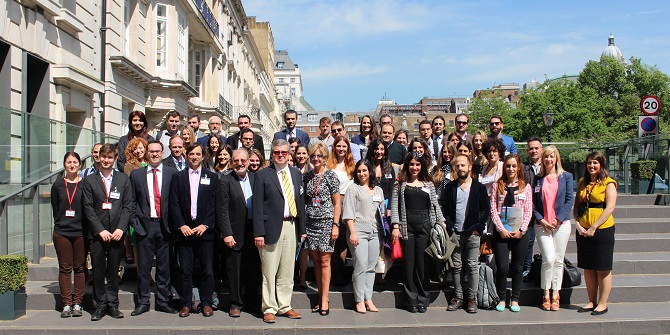From the 1990s to the 2020s, Kevin Featherstone recounts the establishment of the European Institute, reviews its management structures and discusses its previous and ongoing cross-disciplinary research and teaching accomplishments.
The European Institute as a “model”
The European Institute (EI) is a cosmopolitan department, in a cosmopolitan School, in a cosmopolitan city. LSE, by its composition, has long been one of the most diverse European universities in the world: in terms of the number of non-nationals amongst its staff and students. The European Institute is the most obvious face of this outward orientation.
But for LSE to create a separate European Institute in 1991-92 was not an obvious or inevitable choice. Yes, LSE was joining a wave in British and continental universities at the time in promoting “European Studies” when student demand and academic research drove a new focus in response to unfolding European events. But LSE had never really invested in “area studies” – these were located elsewhere in the University of London, of which LSE was still then part. “European studies” typically transcended both the arts/humanities and the social sciences, and LSE could offer the latter more than the former. Perhaps then, and certainly later, there was also some disdain for study and research that risked treating Europe in isolation as sui generis.
Amongst its peer universities, “European studies” had also been institutionalised in different formats. The Center for European Studies at Harvard, for example, was and remains a facilitator for academic interaction amongst staff who have their “homes” within single-discipline departments. The European University Institute in Florence, established in the 1970s, focussed on Europe but across single-discipline departments. Closer to home, the College of Europe in Bruges offered training for those in, or hoping to enter, the Brussels’ institutions. LSE’s aspirations were different.
Instead, the School created, under Howard Machin, an “institute” that became a teaching department. But, after some faltering initiatives to the contrary, it was to be limited to postgraduate teaching and research. That model still created difficulties in how to distinguish the European Institute from cognate departments like Government, International Relations and Law – each of which comprised academics, with leading international profiles, specialising on Europe – as well as others. Indeed, the problems were compounded by “near” departments already offering their own master’s programmes on Europe and the European integration process, while the European Institute launched its own MSc European Studies. And the European Institute itself began with a rather disparate coverage of different disciplines and foci. For the national auditing of staff research (under the then Research Assessment Exercise), the European Institute was subsumed in the 1990s under the “Politics and International Studies” panel, exacerbating the problem of the European Institute establishing its own profile and reputation.
An internal School review of the European Institute in 2001 highlighted a number of these problems, as well as addressing its internal governance. The option of emulating the CES model at Harvard was eschewed; the European Institute had already advanced much further than that. An early core focus – the political economy of Europe – would be sustained and, indeed, grow. Alongside this, the European Institute would join the departments of Government and International Relations in a shared MSc programme focussing on the politics of the European Union. The latter was a large programme – recruiting almost 200 students every year – indeed, it was one of the largest such programmes in the world at the time.
The European Institute was not framed by an “area studies” approach but would focus largely on Europe at the supranational level and across the continent, examining processes of integration and fragmentation. It would apply social scientific knowledge to European problems, facilitating their wider comparison. A unifying mantra emerged of asking “What is Europe? How does it work? And why does it work in the way it does?”. The distinctiveness of its intellectual agenda now better matched that of its structural differentiation from the rest of LSE and the European Institute would be a fertile ground for cross-disciplinary dialogue, matching LSE’s conception of an “institute”. Its success would be evident in it becoming a model that other universities acted to emulate.
Managing the European Institute
Unlike many other universities, LSE has a much “flatter” internal management structure. Thus, heads of department are more readily empowered to achieve their goals by supportive LSE directors, with whom they can have easy interaction. To my knowledge, successive European Institute heads have benefitted in this fashion – from Tony Giddens, Howard Davies, Julia Black, and Minouche Shafik, in particular.
When I first became “Director” (as the title then was) of the European Institute in 2004, I was aware of the post-review aftermath, but also of a new internal dynamic. My immediate predecessor, Paul Taylor, had transformed the internal working environment of the Institute in a very positive manner. The weekly staff lunches and social gatherings that Paul initiated still continue, for example. With Paul’s lead, the European Institute’s staff – academic and administrative – displayed a tremendous commitment to the raison d’etre of LSE having a European Institute. They recognised that the European Institute still had something to prove, and its staff were committed to it as a project. The European Institute heads were not simply there to keep things “ticking along”, but rather to think strategically and advance a mission.
Alongside myself, over the years the European Institute has benefited from the leadership of a number of different Heads: Paul Taylor, Damian Chalmers, Paul De Grauwe, Maurice Fraser and Simon Glendinning. I believe each of us have felt the commitment of our colleagues, and we have been supported by exceptional managers and administrators: Elaine Hemmings and Carl Ludwig Campbell stand out in my time. There are colleagues who have remained with the European Institute from its early days – Nick Barr, Spyros Economides, Bob Hancke, Abby Innes, Jennifer Jackson-Preece, and Waltraud Schelkle – and they have shaped the atmosphere within it. Today, Simon Glendinning, now serving for a second period as Head, maintains a strong morale amongst both academic and professional services colleagues: the European Institute has long been one of the friendliest departments at LSE. (At the present time, this is reflected in the extraordinary efforts made to adapt teaching during the COVID-19 pandemic and to maintain the quality of the student experience.)
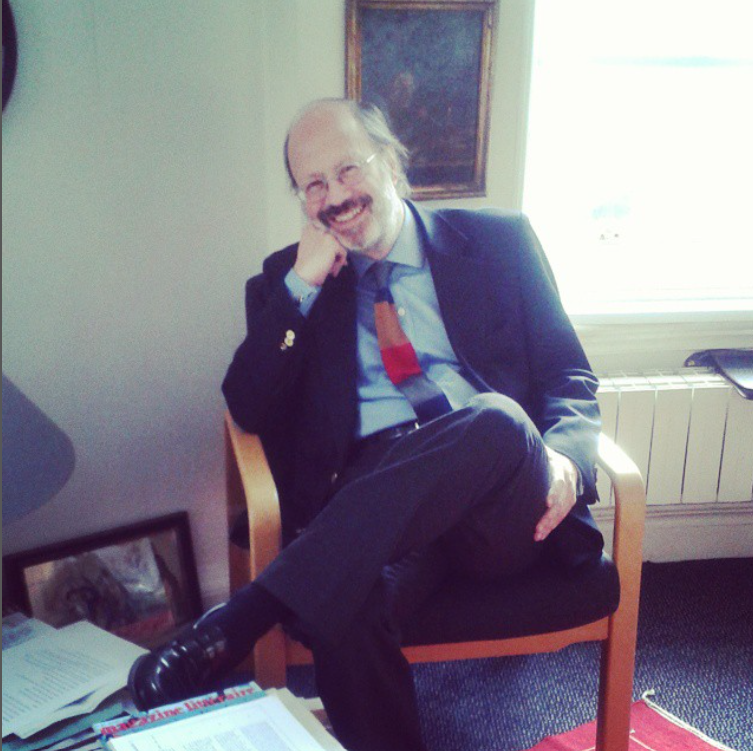
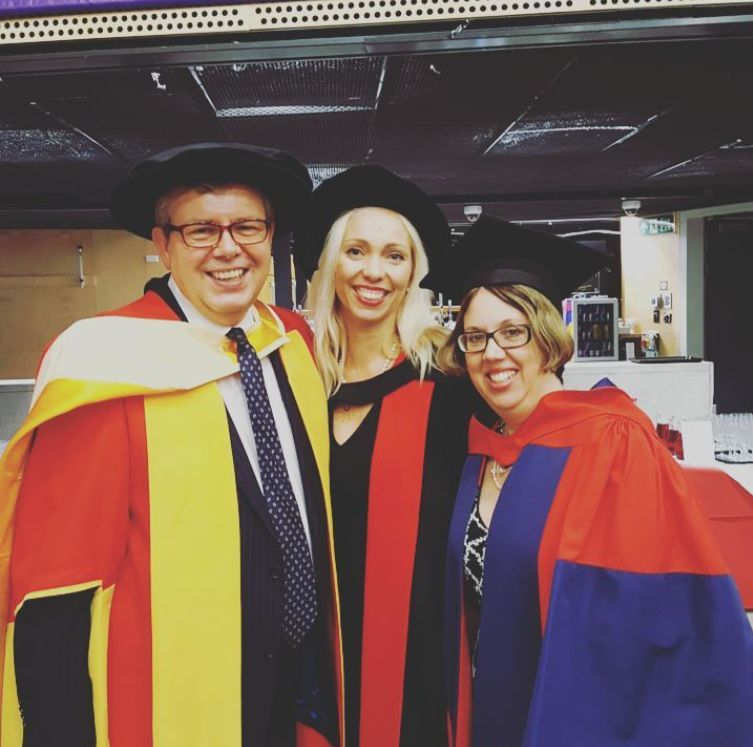
Innovation
With this spirit, the European Institute was well-positioned to innovate, and it did so. Over the course of its history, the European Institute not only has a good record of attracting external research grants – from both research councils and the EU itself – it has also been successful in obtaining philanthropic support for its development. The Chair on Contemporary Greece and that on Spain were followed by others on Turkey, the EU institutions (an initiative of Damian Chalmers), and European political economy. For a period, the European Institute had more externally endowed Chairs than the rest of LSE in total.
Further initiatives included becoming a “Jean Monnet Centre of Excellence” and being highly commended by the scheme thereafter. Research units such as the Hellenic Observatory expanded, the programme on Turkey developed further, and a new unit on south-east Europe (LSEE) was launched. The Forum for European Philosophy added an extra dimension. Also, over the years, the European Institute’s public events programme has grown hugely – it has long been one of the School’s largest – and it has been highly successful in drawing to it some of Europe’s leading political, economic and social figures, to inform debate amongst the LSE community, but also much further afield. The European Institute has been the platform for the School in this respect: displaying to the full LSE’s tradition of public engagement.
Rather like the “bicycle” metaphor often applied to the EU – it must make further progress with its integration, otherwise there’s a risk of it falling apart – the European Institute has been a project that staff “buy-in” to when there is a clear strategic lead.
Certainly, periods of complacency have been costly. An internal LSE review in 2015 highlighted the declining student recruitment and the increasing financial stringencies. This was a difficult period for me to return as Head, but the European Institute quickly responded with further innovation. We were ably served by Jennifer Jackson-Preece, as Deputy Head. Degrees were overhauled: notably, the previous MSc programme on EU politics was substantially revised to become a much more successful MSc on European and International Public Policy.
In tandem, the MSc Ideas and Identities was significantly restructured to become the MSc Culture and Conflict, a dimension of the European Institute that has intellectual roots in a much earlier MSc in Nationalism. Recruitment for the MSc programme on Migration grew significantly. In addition, new “double degree” programmes were launched with Bocconi (Italy) and Fudan (China) universities, to be placed alongside that with Sciences-Po in Paris. (Incredibly, I recall flying from London to Shanghai and back for one night, in between teaching, to agree the Fudan degree!). The increased attention to recruitment and the enhancement of the “student experience” by what is now designated as professional services staff greatly added to the transformation of the European Institute’s fortunes.
The European Institute’s teaching is now solidly based around four pillars – political economy; public policy; culture and conflict; and migration. These provide a coherent intellectual “whole” to its profile, as well as to the cross-disciplinary research discussions amongst its staff and students.
One challenge to the European Institute’s position that has not so far materialised is that of Brexit, following the 2016 referendum vote to bring the UK out of the EU. Student recruitment to LSE from the rest of Europe has actually increased in recent years and that of the European Institute even more so. The “LSE Programme on Brexit and Beyond”, hosted by the European Institute and the School of Public Policy, attracted high numbers to its blog (some three million visitors in three years) and its public (and private) events (over 7,000 in three years). Of course, the impact of Brexit on student recruitment to the UK may still prove significant: an uncertainty of which to be mindful. But Brexit has also accentuated the intellectual value of the EI’s role for LSE, as the UK and the EU adjust to new realities.
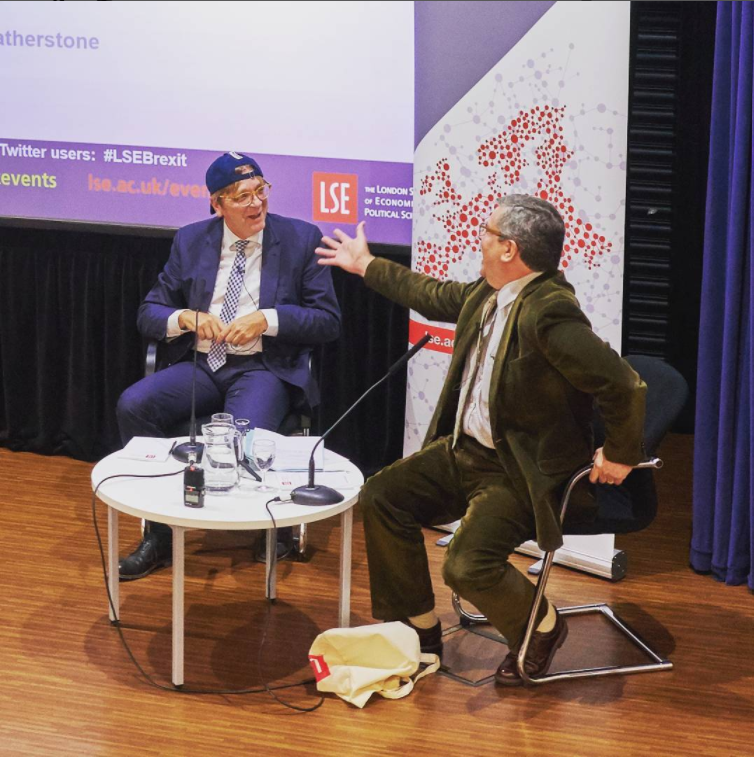
The European Institute’s standing
The European Institute has come a long way over its 30 years, and it deserves to celebrate its achievements. Its profile and reputation are much higher. Its intellectual coherence is reflected in its teaching and its student recruitment has been consolidated.
Worthy of special mention is that its research has regularly been deemed outstanding. Following our decision to make a separate European Institute submission to the “Research Assessment Exercise”, later the “Research Excellence Framework” (the UK research audits), the Institute has been placed top in its category. Indeed, it has been one of a small number of LSE departments to maintain that consistency.
Over the years, the European Institute has comprised some of the leading academics in their field. Its staff members have included figures such as John Gray, Anthony Smith, Paul Preston, Sevket Pamuk, Willem Buiter, Helen Wallace, Simon Hix, and Sara Hobolt, while it has hosted visiting professors including Peter Hall, Linda Colley, Dani Rodrik, David Soskice, and Susan Woodward, to name just a few. As such, it has fostered high quality cross-disciplinary exchange on important agendas, as an LSE “institute” should. And, amongst its current staff are equal leaders today, while the European Institute continues to be excellent in nurturing new talent.
Our students have gone on to pursue often very impressive careers, across many different spheres – as leaders in academia, national and European governance, and the media, for example – and we are rightly proud of them.
In short, those who took the decision to create the European Institute some three decades ago can be proud that they have fostered a real asset for LSE and one that rightly reflects its inherent “Europeanness”. There are many shared achievements to celebrate in this landmark year and a strong base on which to contemplate the next 30 years!
This blog series forms part of the 30th anniversary celebration of the European Institute at LSE. Visit the 30thanniversary of the European Institute website.


